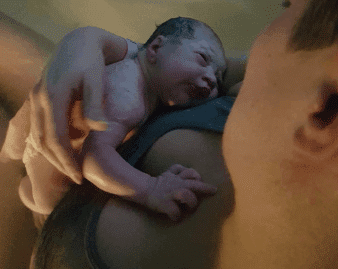Being a Birth Partner
Jen Tapson
DipHB (KGH) ~ PGCE (Primary Ed) ~ BA (Hons)
https://jentallbirth.wixsite.com/hypnobirthing
Instagram @allbirth_hypnobirthing
Summary
An expectant woman or birthing person who uses hypnobirthing will have thought carefully about who will support them in labour. That chosen person can be helpful to the labouring woman in many different ways offering both moral and practical support. As well as ensuring the labouring woman has the environment and comforts they have asked for to be completely calm and relaxed, you will also have the role of communicating their preferences to caregivers. By ensuring this is agreed ahead of labour starting then the labouring person will not have to consider and plan (and engage their thinking brain when their instincts should be all that is engaged) during labour.
Birth Partners and Hypnobirthing
Hypnobirthing is becoming increasingly popular and relevant for pregnant women and people and has received lots of recent press coverage and visibility on public figures’ social media accounts. Hypnobirthing prepares women for what will happen in birth and how to welcome and look forward to the progression of their labour but it also hugely benefits you, the birth partner. Katharine Graves quotes one father in the KGH Hypnobirthing Book who says “The thing about hypnobirthing is that it works.” A birth partner needs to be singing from the same hymn sheet as the person in labour because the medical staff and caregivers should not bother a hypnobirthing person with questions and instead should look to the birth partner to uphold the labouring person’s wishes. So… ahead of labour beginning, discussions need to be had around what they want from their birth and if that should not be possible due to a valid, clinically-justified reason (more on this to follow) then what would the next best outcome be? And if that couldn’t happen, then what next? And if none of those options were viable, then what? Is there an overwhelming priority of what they want from their birthing experience? These conversations may be lengthy and at times difficult to navigate however in having them ahead of time the labouring person can avoid being disturbed from their ‘zone’ with talks of ‘risks’ and interventions. Aside from becoming a spokesperson for the parent who is in labour then you may have the following seemingly light but crucial duties:
Food:
The person you are supporting may need you to prompt them to eat. They may tell you they don’t feel like it or they may request an obscure food type (that hopefully, you have) but you can support them by saying, “It was important to you that I remind you to eat. Your body needs fuel.”
Drink:
A sturdy cup or beaker with a straw can be incredibly useful as you can simply hold it within sipping distance between surges and allow them to maintain hydration. Now they could be labouring with fuelled, hydrated muscles thanks to you! And how beautifully they will work…
Guardian:
You can intercept any unwelcome noise or distractions from other people. If an overly chatty caregiver arrives, a polite “We are keeping the noise level low so (birthing person) can focus. Thank you so much.” If discussions were to begin about “failure to progress” or about how many hours since their waters had broken then this conversation can be steered away to a quiet corner or outside the birth room. Any mention of ‘risks’ is highly emotive and could understandably worry the birthing parent so they should be protected from this talk. Don’t be afraid to respond to any suggestions of next steps with “I understand but we would like a little time to think about what this means for us and how we continue”. The reason I mentioned clinical justification above is that sometimes interventions will be suggested because of perceived risks. Sometimes the difference between statistical risks and medical preferences can be blurred so asking: “Is your recommendation based on research, data or hospital policy?” will tell you whether it is in fact based upon fact or hospital guidance.
Environment:
You can control the birthing environment by employing the optimum (requested) conditions such as low light, fairy-lit areas, aromatherapy sprays, real or electric tealights, yoga balls, calming music and so on. Like any big event, party, wedding, holiday the person in labour will have had clear ideas about how they wanted it to go so it is your responsibility to ensure as much of this happens as possible.
Comforter:
The very real comforts such as ensuring they use the toilet frequently or are relieving themselves in the pool is vital as a full bladder or bowel can apply pressure around the baby as they descend and could restrict their movements. As labour cracks on you may have the privilege of helping them to the bathroom to do their thing because even the shortest walk to the bathroom or en-suite feels so much further when your body is busy doing so much else. Throughout labour, you really are at the whim of the birthing person with requests or even demands of hair-stroking or back massages. You are the person they treasure and trust and if they confide in you that they can’t do it, take comfort in the fact that it means the soon-to-be-parent will probably be meeting their baby very soon! And that they have got this far thanks to the support and strength you have provided them with.
Links to resources
 Books
Books
The Positive Birth Book by Milli Hill
 Websites/Podcasts
Websites/Podcasts
The Ultimate Guide to Being a Birth Partner Podcast by Sallyann Beresford

















